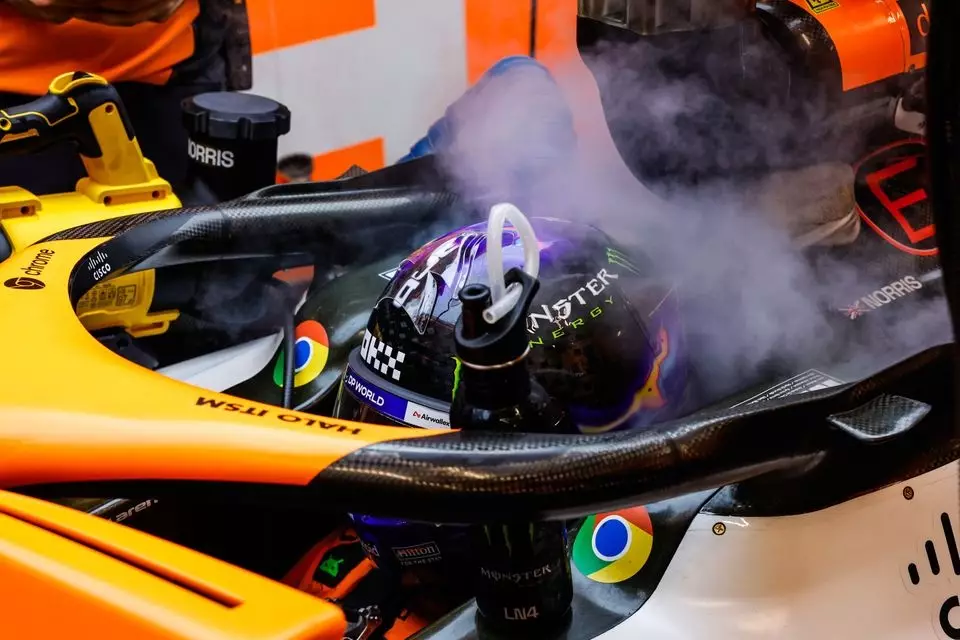The landscape of Formula 1 is continually evolving, reflecting a commitment not only to speed and performance but also to the safety and welfare of its drivers. The recent decisions taken by the FIA’s Formula 1 Commission highlight this commitment and address pressing concerns faced during races, particularly under extreme heat conditions. The integration of driver cooling kits and revised grid procedures are two major initiatives set to take effect in the future. These changes seem poised to enhance both driver safety and the sport’s competitive integrity.
The impetus for introducing driver cooling kits stems from alarming incidents that occurred during the 2023 Qatar Grand Prix, where several racers reported heat exhaustion after their grueling performances. Such occurrences underscore the harsh realities athletes face in high-stress environments like Formula 1, particularly amid rising global temperatures and increasing race calendar demands. The FIA’s decision to approve these cooling systems represents a proactive approach to mitigate heat-related risks, ensuring that drivers can perform at their peak without compromising their physical health.
Originally, the proposal included the implementation of a more complex air conditioning system within the vehicles. However, following collaborative research among the FIA and F1 teams, a streamlined solution emerged that omits the need for a full AC unit. The finalized system aims to provide adequate ventilation and cooling specifically during races characterized by extreme heat, without overcomplicating the technical requirements of the car. While the prospect of altering the minimum weight of vehicles may raise some concerns among teams, it is a necessary adaptation if it ensures driver safety during intense races.
The commission not only focused on cooling systems but also tackled issues related to race starts and grid integrity. The experience from the Brazilian Grand Prix, where Williams driver Alex Albon was unable to race due to an accident, highlighted loopholes in existing protocols that could lead to unfair scenarios on the grid. As it stood, the protocols dictated that even though Albon’s car was withdrawn long before the race, his starting position remained vacant, potentially influencing strategic decisions for other teams.
To rectify this, the FIA has now established stricter guidelines for final grid formation. The time frame has been revised so that the definitive grid will be set at least one hour before the race, eliminating the chances of unexpected withdrawals affecting grid composition. This change will allow cars that remain in contention to occupy available positions, thereby upholding the competitive nature of the sport and ensuring fairness among teams.
In addition to these safety and fairness measures, the commission addressed financial regulations pertaining to sustainability. Acknowledging the automotive industry’s pivotal shift toward greener practices, the FIA has expanded exemptions against the cost cap for expenses directly related to sustainability initiatives. This strategic move not only encourages teams to invest in environmentally friendly technologies but also aligns Formula 1 more closely with global sustainability goals.
The discussions also touched upon the ongoing development of technical regulations for the 2026 season. These changes are aimed at enhancing performance through increased downforce, fostering innovation, and attracting a broader audience to the sport. The FIA’s confidence in finalizing these regulations post-2024 season indicates a commitment to forward-thinking strategies that elevate the competitive edge of Formula 1.
Another noteworthy change involves the incorporation of gender-neutral language into FIA sporting regulations. This shift reflects broader societal changes and the organization’s intent to make the sport more inclusive. By eliminating gendered language from regulatory documents, the FIA is establishing a more welcoming environment for all individuals involved in the sport, paving the way for future generations of racers and fans from diverse backgrounds.
The initiatives approved by the FIA’s Formula 1 Commission speak volumes about the sport’s commitment to adapting to modern challenges. By prioritizing driver safety, ensuring fairness on the grid, promoting sustainability, and fostering inclusivity, Formula 1 is embarking on a transformative journey that promises to enhance the sport for both its participants and its global audience. The decisions made now are not just reactive but strategically position Formula 1 for a progressive future, firmly rooted in the values of safety, equality, and environmental responsibility.

